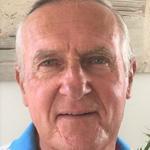
A common statement sometimes even made by a close relative. But whilst: We have a right to believe whatever we want, not everything we believe is right. Ravi Zacharias
What I don’t want to believe is ‘my truth’
In effect, ‘because I don’t believe it therefore it’s not true’. Their truth is solely what they do/don’t believe. Deep down if we could ‘scratch their surface’ this is probably limited to a religious debate. By shutting down discussion they’re quickly rescued from an uncomfortable situation.
The logic is that ‘unless I can see it I won’t (and therefore don’t) believe it, and because I don’t believe it therefore it’s not true’. Unless they can see it whatever is said in opposition has no effect on or interest to them. This faulty logic applies to atheism about which there is not, never has been and never can be any evidence. You can adduce evidence countering a positive statement (the Crown alleges that you murdered…) but both in law and generally you cannot prove a negative.
We believe in the invisible and in the unseen
We cannot see the wind. We can feel it on our face, we can see the effect of it blowing leaves and bending branches, and if blowing hard enough we can hear it. But we can’t see it.
We can’t see electricity but on a steamy hot day are relieved to enter air-conditioned shopping malls as entry doors open and bright lighting enables uninterrupted passage.
We can’t see gravity. Life as we know it would be unimaginable without it. When we go to the tap for a glass of water were it not for gravity the water would not fall into the glass. We could not dive into the swimming pool or surf. Because of weightlessness we could not sit on a chair or play golf. Going to the loo would be challenging.
Much of life involves the invisible and the unseen in which there is unquestioning belief: love, the sound of music and laughter, our internal organs, the airline pilot, train driver, ship’s captain, bacteria, if unconscious: the paramedics and emergency surgeon, air, the internet, whatever activates our cell/mobile phone, aromas of good coffee/cooking and corona virus. We board planes in total trust for our lives not knowing anything about the unseen pilots: even their sex.
We unquestioningly believe in the reality of both the invisible and the unseen. But although God is both, many of us refuse to believe in Him even though there is ample powerful evidence in His favour.
Thomas’ doubt
After Jesus’ resurrection His disciple Thomas said: Unless I see the nail marks in His hands and put my finger where the nails were and put my hand in His side, I will not believe it. (John chapter 20 verse 25)…Jesus said to him…Because you have seen Me you have believed. Blessed are those who have not seen Me and yet have believed. (chapter 20 verse 29). That final statement embraces every Christian down through the centuries including us.
This mindset recorded about doubting Thomas is the same as that of our close relative. Truly there is nothing new under the sun. As king Solomon of Jerusalem, the ‘Teacher’ said: There is a time for everything…a time to be born and a time to die…a time to search and a time to give up, a time to be silent and a time to speak. (Ecclesiastes chapter 3 verses 1-7). And I add: there is only time to ask, seek, decide and believe before we die.
There is a strong need to simply consider with an open mind the validated historical evidence and follow it to its conclusion.
The immensely powerful wealthy Teacher denied himself no pleasure but when he: surveyed all that my hands had done and what I had toiled to achieve [he had already concluded that] everything was meaningless, a chasing after the wind; nothing was gained under the sun. (chapter 2 verse 11).
After experiencing all his charmed existence could provide and nearing the end of his life he wrote: Now all has been heard; here is the conclusion of the matter: Fear God and keep His commandments for this is the whole duty of man. (chapter 12 verse 13).
When asked which is the greatest commandment Jesus replied: Love the LORD your God with all your heart, soul, mind and strength. (Matthew chapter 22 verse 37).
Where’s our finishing line? What are we looking for?
What we see in the physical world will some day be gone. Nothing lasts forever. But what is unseen where the thief cannot break in and steal and our treasures will not rust away does last forever.
As believers in and followers of God: we fix our eyes not on what is seen but on what is unseen. For what is seen is temporary but what is unseen is eternal.(2 Corinthians chapter 4 verse 18).
What a paradox!
A paradox is a seemingly absurd or contradictory statement which when investigated may prove to be well-founded or true after all. Christianity’s paradox is that we fix our eyes on the (presently) unseen.
If our earthly father was a good man, although his love was invisible its effect could be powerfully experienced not only during life but also remain in our memory long after separation by death.
But even if we did not have a good earthly father, although the tender unchanging love of our perfect heavenly Father is likewise invisible, the eternal effect of Him graciously giving Jesus to save all who choose to believe will be powerfully experienced now, and forever will be our never-ending story.
Jesus said: I am the truth. (John chapter 14 verse 6).

Gavin Lawrie is a retired Barrister and Solicitor from Tweed Heads NSW Australia and author of the book: 'THE EVIDENCE OF EVOLUTION: Uncovering The Faulty Science Of Dawkins' Attack On Creationism'. He is married to Jan with two adult children and they are grandparents.
Gavin Lawrie's previous articles may be viewed at http://www.pressserviceinternational.org/gavin-lawrie.html